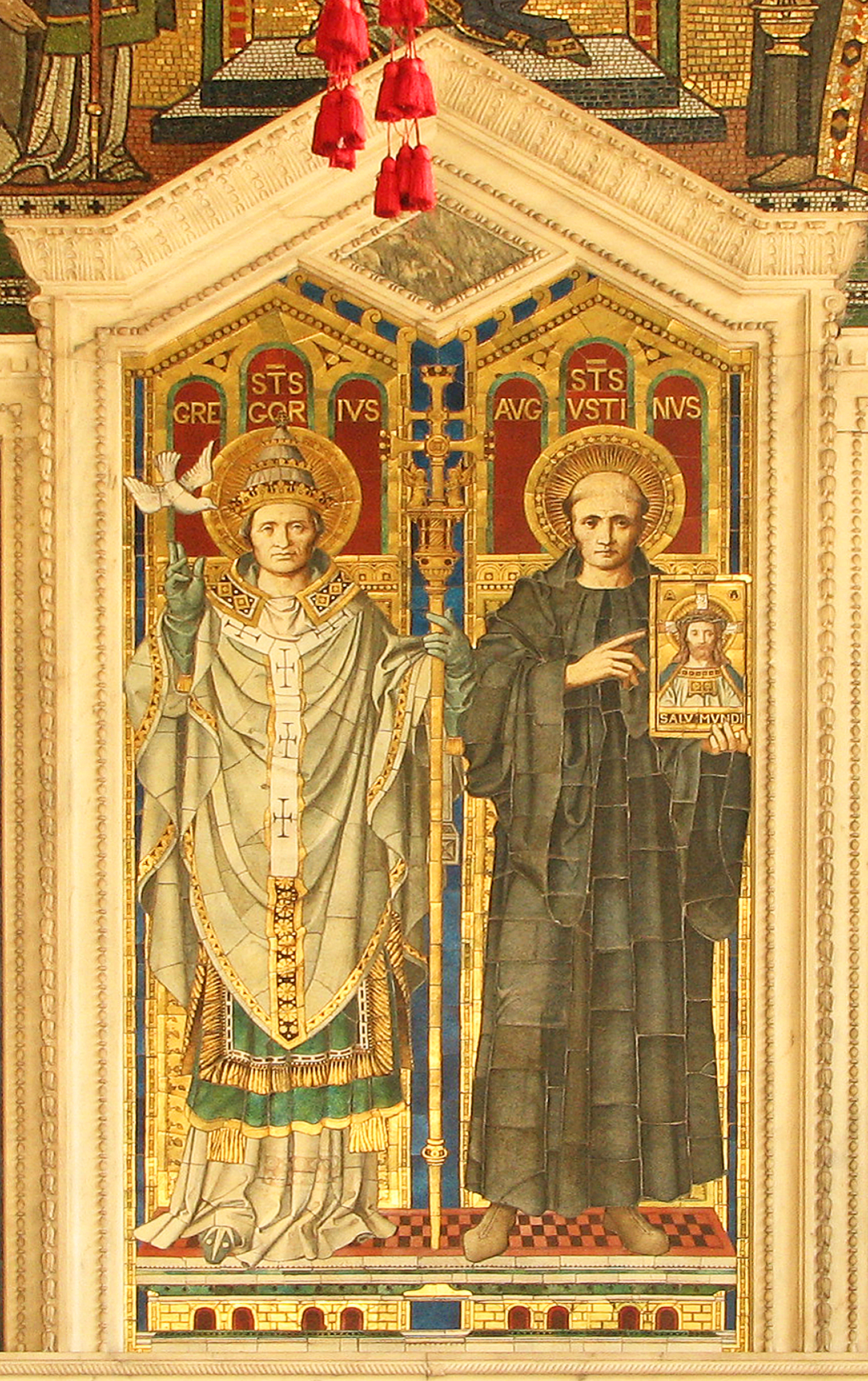The latest Minute Missive sent out to friends and supporters by the FSSP has a historically based reflection on the potential for future pathways in the celebration of the Extraordinary Form of Mass. I do not know how many of my readers will have received it directly, so I have copied the text and am reproducing it as follows:
-------
This week we celebrate back-to-back feasts of two great English saints–Bede the Venerable on May 27 and Augustine of Canterbury on May 28. Both of these men are recognized today as key figures in the early English Church–St. Bede who wrote the Ecclesiastical History of the English People and saved much history from oblivion, and St. Augustine who was appointed by Pope St. Gregory the Great to convert the Anglo-Saxons and become the Apostle to England.
Among many other treasures, Bede’s chronicle preserves an invaluable exchange between Augustine and Gregory. Augustine asks why communities who shared the same faith nevertheless had different liturgical expressions.
Pope Gregory answered back:
-------
You know, my brother, the custom of the Roman church in which you remember you were bred up. But it pleases me, that if you have found anything, either in the Roman, or the Gallican, or any other church, which may be more acceptable to Almighty God, you carefully make choice of the same, and sedulously teach the church of the English, which as yet is new in the faith, whatsoever you can gather from the several churches. For things are not to be loved for the sake of places, but places for the sake of good things. Choose, therefore, from every church those things that are pious, religious, and upright, and when you have, as it were, made them up into one body, let the minds of the English be accustomed thereto.
Fourteen hundred years later, we are still coming to terms with similar issues.
The 1962 Missal has been the standard missal for FSSP parishes for so long–but many have long lamented that it is profoundly untraditional for a calendar to be “frozen in amber” without any new saints being added. For example, it feels quite unnatural to honor St. Pio of Pietrelcina everywhere but on our altars. Yet on the other hand, how would it be possible to add in 60 years of new saints while also respecting the integrity of the traditional calendar? It took until this very year to painstakingly work out a solution, through the Congregation of the Faith’s promulgation of the decree Cum Sanctissima.
Other scholars have looked back to earlier times and wondered whether it would not be truer to the classical Roman Rite to restore practices that were abolished by Pius XII’s liturgical changes of 1955. Rome has granted some limited allowances along these lines as well, with some FSSP parishes being provisionally allowed to use the pre-1955 Holy Week rites.
Like Augustine on his arrival on the British Isles, we find ourselves confronted with disparate liturgical books but a wish to harmonize them in a single “body” that best exemplifies the overall spirit of the classical Roman Mass. Our different missals are chronological rather than geographical, but the essential problem is the same.
A liturgical purist might well object that to foray outside the protective confines of the 1962 missal is, to use the vernacular expression, “picking and choosing.” That for something as vitally important as the liturgical books of the Roman Rite, we should simply stick to the commonly-used missal and be done, instead of embarking on a complicated synthesis that will lead (so the thinking goes) to inevitable liturgical chaos.
But thanks to the pens of both Augustine and Bede, we can put the question back to Pope St. Gregory for advice.
But thanks to the pens of both Augustine and Bede, we can put the question back to Pope St. Gregory for advice.
Gregory flatly stated that it pleased him for Augustine to “carefully make choice” from the liturgical practices of different churches. Indeed, he himself was responsible for finalizing the Traditional Latin Mass as we know it today.
However, he is no reckless reformer. He naturally assumes that such a synthesis will only make use of those things that “may be more acceptable to Almighty God”, and are “pious, religious, and upright”. In other words, the ingredients of that synthesis must be chosen from what is in accord with the faith that Christ has given us and that contributes most to God’s glory. This principle necessarily excludes from consideration any concept that stems from mere convenience, worldliness, current fashions, or hostility or embarrassment toward tradition.
As the spiritual descendants of the English Church founded by Augustine and chronicled by Bede, we ought to consider how to apply Gregory’s sage words to our own time and our own liturgical challenges. Granted, they do not give us minute instructions to that effect, but they do provide us with some key points to keep in mind.
For tradition, in its fullest and truest definition, is not so much the exclusive property of one Missal or another, but remains ever present, in varying degrees, as a unifying thread through all of them. May Sts. Bede, Augustine, and Gregory watch over us as we strive to preserve it.
-------
This seems to me to offer not a political mechanism but rather a traditional understanding and precedent for appropriate adaptation of practice in respect of the Calendar and a framework for looking at further restoration of ancient observances. It does not depart from traditional understanding but seeks to provide a subtle new light to enhance the living inheritance. This is not so much a programme as a philosophy and a hermeneutic. It is also one that could be profitably be applied in parishes to celebrations in the Ordinary Form to assist in the recovery of the sacred.



No comments:
Post a Comment